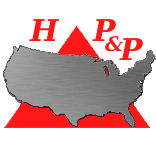The OSHA rule, Fall Protection 29 CFR 1926.500 Subpart M, clarifies what an employer must do to provide fall protection for employees, such as identifying and evaluating fall hazards and providing specific training.

The OSHA rule, Fall Protection 29 CFR 1926.500 Subpart M, clarifies what an employer must do to provide fall protection for employees, such as identifying and evaluating fall hazards and providing specific training.
In the Fall Protection training class, students will learn:
Fall Protection Training and Fall Prevention Training for your employees and supervisors is not only a requirement of the law, but also may save lives and company money.
This training class takes place over approximately 4 hours. Students will receive a wallet card upon completion of the Fall Protection course.
Emergencies occur every day affecting employees, facilities and operations worldwide. Natural disasters occur such as floods, fires, tornadoes and hurricanes.
A rise in man made disasters stemming from workplace violence, chemical explosions and fire, to a specter of terrorists acts have all tested many an emergency response unit.
Also, today's computer-based world of commerce, increases the risk of facilities finding themselves at a stand still due to technological downtime induced by natural or man-made emergencies.
© 2025 coursetakers.com All Rights Reserved. Terms and Conditions of use | Privacy Policy